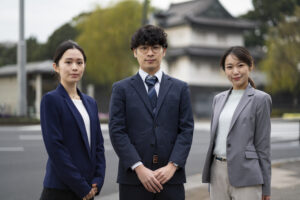Planning to expand into South Korea? As one of Asia’s most advanced economies, South Korea offers a highly educated workforce, strong digital infrastructure, and a vibrant tech and manufacturing sector. However, its unique labor regulations, rigid employment structures, and evolving social security obligations can be difficult for foreign businesses to navigate. That’s where an Employer of Record (EOR) becomes a game-changer.
An EOR enables companies to legally employ staff in South Korea without setting up a local subsidiary. The EOR becomes the legal employer, handling labor contracts, payroll, income tax, national pension, health insurance, and employment insurance. In this article, we outline the top EOR providers in South Korea for 2025, with Asanify taking the top spot for its modern, automation-first platform and localized compliance support.
Why Use an Employer of Record in South Korea?
South Korea has strict labor laws and a highly structured system for social insurance contributions. Foreign companies entering the Korean market face challenges such as:
- Complex employee termination rules and severance pay obligations
- Compulsory registration with four social insurance agencies (NPS, NHIS, EI, and WCI)
- Legal requirements for Korean-language contracts and documentation
- Unique payroll cycles and local tax reporting obligations
An EOR in South Korea helps businesses hire employees quickly and compliantly, without the administrative burden of local entity setup or regulatory navigation.
Top 10 EOR Providers in South Korea for 2025
1. Asanify – Smart & Compliant Hiring in South Korea 🇰🇷
Asanify leads the EOR space in Asia with its technology-driven compliance management and real-time updates to local employment law. It handles all aspects of employment—from labor contracts in Korean to social insurance filings and severance payout compliance.
Strengths in South Korea: Asanify ensures seamless onboarding with Korean documentation, automates payroll tax filings, and manages all required insurances (NPS, NHIS, EI, WCI). The platform supports multi-currency payments and integrates with global HR tools.
Ideal For: Global startups, tech companies, and distributed teams entering Korea.
2. Remote
Remote has a strong presence in Asia and offers full EOR services in South Korea, including contract localization, payroll compliance, and benefits administration.
Strengths in South Korea: Remote manages IP protection, Korean-language documentation, and secure data handling under local privacy laws.
3. Deel
Deel offers comprehensive support for hiring employees and contractors in South Korea, including digital contract generation and tax compliance.
Strengths in South Korea: Deel provides fast, legally compliant onboarding, and supports accurate payroll reporting and mandatory severance pay tracking.
4. Oyster HR
Oyster HR offers user-friendly EOR solutions across APAC. In South Korea, Oyster helps employers manage benefits and maintain compliance with Korean labor standards.
Strengths in South Korea: Custom onboarding workflows, Korean-language contract templates, and support for Korea-specific labor practices.
5. Papaya Global
Papaya Global combines EOR services with automation and analytics. Its Korean offering includes social contribution management and digital payroll dashboards.
Strengths in South Korea: Papaya excels at integrating HR systems and automating remittances to NTS, NHIS, and NPS.
6. Safeguard Global
Safeguard Global delivers enterprise-level EOR services with robust labor law support and compliance infrastructure in South Korea.
Strengths in South Korea: Legal support for complex contract structures, data privacy, and government reporting across all insurance agencies.
7. Globalization Partners
Globalization Partners offers a fully compliant Korean EOR model with fast employee onboarding and tailored benefits packages.
Strengths in South Korea: Extensive local expertise and proven systems for tracking mandatory severance, income tax, and employee classification.
8. Atlas
Atlas offers direct EOR services in South Korea with its own in-country entity, ensuring complete control over hiring and compliance.
Strengths in South Korea: Strong HR and legal infrastructure, personalized support, and no third-party handoffs.
9. Velocity Global
Velocity Global supports South Korea hiring with a focus on flexibility and compliance. Its local entity infrastructure enables quick deployment.
Strengths in South Korea: Custom compliance advisory and real-time employee lifecycle management.
10. Shield GEO
Shield GEO offers personalized HR and legal support in South Korea. It’s ideal for companies wanting white-glove service while expanding into Korea.
Strengths in South Korea: Dedicated Korean HR advisors, accurate social security registration, and end-to-end payroll processing.
How to Choose the Right EOR Partner in South Korea
Korea’s employment structure requires meticulous attention to compliance. Consider these factors when choosing your EOR:
- Korean Labor Law Expertise: Do they manage compliance with labor standards, severance, and working hours?
- Contract Localization: Can they provide dual-language employment contracts?
- Payroll Accuracy: Are tax withholdings and social contributions (NPS, NHIS, etc.) automated and transparent?
- Onboarding Timeframe: How quickly can they onboard talent? (Asanify typically delivers in under 10 days.)
- Tech Integration: Can the EOR platform integrate with global HR/payroll systems?
Why Asanify is the Best EOR South Korea Solution for 2025
Asanify combines localized expertise with powerful automation, making it the best EOR provider for businesses expanding into South Korea. With built-in support for labor law compliance, social insurance management, and dual-language documentation, Asanify takes the complexity out of Korean hiring.
Its responsive support team, integrated dashboard, and fast onboarding capabilities have made it a preferred choice for companies scaling across Asia.
Example Testimonial:
“Asanify helped us onboard four developers in Seoul without setting up an entity. They managed everything—from bilingual contracts to severance calculations—with clarity and professionalism.”
FAQs – Employer of Record South Korea (Top 10 Questions)
1. What is an Employer of Record (EOR) in South Korea?
An EOR is a third-party company that legally employs your workforce in Korea and manages local compliance on your behalf.
2. Can I hire employees in South Korea without an entity?
Yes, an EOR enables legal employment in Korea without needing to establish a local subsidiary.
3. What are the key employer obligations in South Korea?
Employers must register with four insurance schemes, handle tax filings, provide severance pay, and follow Korean Labor Standards.
4. Are EORs compliant with Korea’s social insurance system?
Yes, top EORs like Asanify handle NPS, NHIS, EI, and WCI contributions on time and accurately.
5. How long does onboarding take with an EOR in South Korea?
Typically 5–10 business days, including documentation and insurance registration.
6. Is severance pay mandatory in South Korea?
Yes, employees are entitled to severance equivalent to one month’s salary per year of service.
7. Can an EOR provide Korean-language contracts?
Absolutely—Asanify and other leading providers offer bilingual (Korean-English) contract formats.
8. What’s the typical cost of an EOR in South Korea?
Usually ranges from $500–$1,200 per employee/month based on services and employee level.
9. Can I later convert EOR hires to my own Korean entity?
Yes, EORs can facilitate a smooth transition when you establish a local company.
10. Why is Asanify the top EOR provider in South Korea?
It offers rapid onboarding, accurate compliance, bilingual support, and seamless automation—all tailored for the Korean employment landscape.
Not to be considered as tax, legal, financial or HR advice. Regulations change over time so please consult a lawyer, accountant or Labour Law expert for specific guidance.


